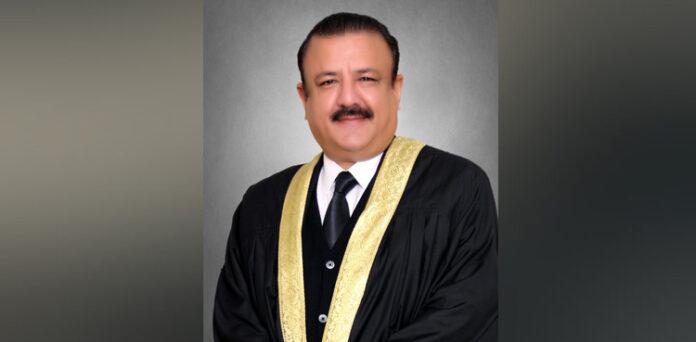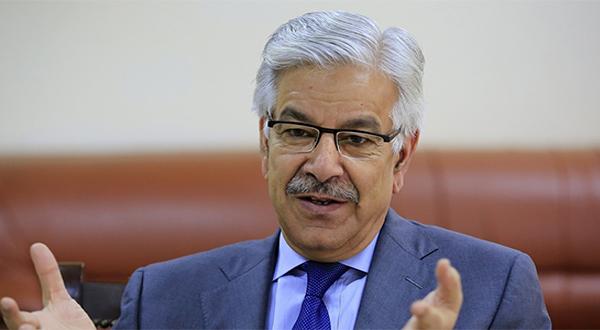The American workforce is aging. According to data from the US Bureau of Labor Statistics, the median age of the American labor force was nearly 42 years old in 2022, up from 40 years old in 2002. Nineteen percent of adults ages 65 and older are currently emp…

Published a year ago on Jul 17th 2024, 12:00 pm
By Web Desk

The American workforce is aging. According to data from the US Bureau of Labor Statistics, the median age of the American labor force was nearly 42 years old in 2022, up from 40 years old in 2002. Nineteen percent of adults ages 65 and older are currently employed, compared to 11 percent in 1987. Further, workers aged 75 and up are the fastest-growing labor demographic. Americans can begin receiving Social Security benefits at age 62 and full benefits at 66, but workers are waiting longer to retire. The country’s leaders are similarly delaying retirement. Presidential candidates Joe Biden, 81, and Donald Trump, 78, are working well past what is considered retirement age. The average national legislator in the US is 61 and the average age on the Supreme Court is over 63. Given the ages of these leaders, a majority of Americans now favor maximum age limits for elected officials and Supreme Court justices; the Biden age story has only accelerated since his disastrous debate performance. There are a multitude of reasons why someone may delay retirement. Maybe they have inadequate savings, they find meaning and fulfillment in their jobs, or their identities are entwined with their profession. People may also choose to hang on to their work because they enjoy the power and prestige that comes with it, says Mo Wang, a professor at the University of Florida who studies retirement and older worker employment. Regardless of your role and influence, there are many factors to consider when weighing retirement. Wang shares what holds people back from passing the torch and how to make your retirement years as fulfilling as possible. This interview has been edited and condensed for clarity. What holds people back from retiring? A very important thing would be people’s work identity. Work is an important part of people’s life, and a lot of people define themselves with their work identity. To retire means they’re going to lose their work identity, and that is usually an important reason that people don’t want to retire. A lot of people work because they enjoy their status, they enjoy their influence, and to retire means they’re going to lose those things. Why is it so hard to untangle our identities from work? Our education told us that working is being useful. Working is very well valued in our life. People view working or being productive as a very good quality, a virtue for their life. We learn to use our work identity to communicate to people who we are. Are there ways outside of work to feel that tie to identity and power? We’ve seen for professional workers, after retirement, they can still engage in some similar work activities in terms of volunteering, or they may engage in some other activities similar to their pre-retired job. Those will be really good for them to substitute their worker identity. We also found that strong family support and family engagement would help substitute worker identity because sometimes, after people retire, they really enjoy being grandparents. They endorse their family identity more so that they can transition better as well. We encourage workers to transition to a mentoring role, passing the knowledge and experience to the next generation. That often helps to make the retiree feel they are still engaged in their professional field and they’re still contributing to the organization. You allow them to keep a little bit of their worker identity so they don’t have to suddenly say goodbye to everything. Are there certain types of jobs that make it difficult for people to retire? It’s difficult to speak to different industries; what we found was actually pretty general. Basically across all different jobs people, if they have a strong worker identity, it is a little bit harder for them to detach themselves from such identity and move into retirement. It’s particularly difficult because in the United States, we don’t have mandatory retirement for most jobs. If people don’t want to retire, most of the time, they can stay in their jobs. Should there be mandatory retirement? For very important jobs we do — for firefighters, air traffic controllers. A lot of the top executive jobs in Fortune 500 companies, they actually build in a mandatory retirement clause in their contracts as well. It really depends on the negotiation for [specific] positions whether a mandatory retirement clause will be written into the contract. Especially if cognitive function is very important for the job, I think having some mandatory time and age, or a well-thought-out evaluation process to ensure the ability to accomplish the job, is very important. Are there ways we can adequately evaluate our own abilities? Basically, how can we know if we’re still doing a good job? Scholars and researchers in Finland actually developed this assessment for work ability to assess whether the person is still qualified and still has the ability to carry out their work. It is a pretty comprehensive assessment. It involves a cognitive evaluation, a mental health-related evaluation. It’s from an occupational health perspective to make sure the person can accomplish the work without creating any danger to themselves, that the workplace will be healthy for them. Europeans have a little bit more experience than the United States on this. In the United States, this kind of assessment often is viewed as unnecessary. The United States oftentimes emphasizes people’s work experience over a 360-degree assessment. Do you see Americans’ relationship with work and the value of institutional knowledge as one of the reasons why we have this aging workforce? Actually, the labor force shortage, that’s really the reason that we have to hold on to the aging workforce because we don’t have good labor supplies for teachers, for nurses. We’re short of those professional workers. We need people to work longer. The other side is we oftentimes rely on people’s experience. If people are willing to work and they have been doing a certain job in a successful way, we tend to feel comfortable letting them do the work without checking whether there’s any decline in work ability. I think it goes both ways. On the one hand, we need those people, the human capital. On the other hand, because we tend to believe people’s experience means a lot for them to accomplish the work, we don’t carry out unnecessary assessments to evaluate or to better position people in their job assignments. What would an appropriate assessment look like? I would say it probably should involve some cognitive assessments, making sure people are mentally equipped to conduct the mental operations for their job, like having a certain level of memory ability, a certain level of the attention [and] focus to do their job. Then the physical side: make sure people can handle day-to-day functioning of their job. For example, can they go to their work on time and not have a hard time doing the basic physical activities at work? Also, evaluating whether they are actually motivated to do their job. A lot of people are not very engaged at their job. They’re not getting a lot of satisfaction from their job. If they don’t enjoy doing their job, then maybe retirement is the right thing to do. Speaking of that motivation, I can imagine it being difficult to retire if you still feel motivated, or you have something to contribute, or you're good at it. Is that worth sticking around for? This is assuming they are the only decision-maker. Most of the time, we have to think about it from the employer standpoint as well, whether the employer is having any opportunity cost not replacing the worker, even if the worker is willing to stay on. Just because a worker is really motivated to work doesn’t mean we should always just keep the person on the same job. Maybe we can shift the job or reallocate them according to their work ability so that their human capital can be better utilized. For those who do have a difficult time retiring, what ultimately pushes them to pass the torch? Oftentimes it’s the physical health component. Usually it’s because, physically, they couldn’t carry on anymore. Another main reason will be family demands: if they have to take care of their sick spouse, or their parents need to be taken care of. A lot of people will retire to take on those family care responsibilities. Those are usually viewed as involuntary retirements. They are not really choosing to retire, but the situation dictates that they should retire. Most people retire in a voluntary way. People don’t struggle that much to retire most of the time. They know when they want to retire, and then they will plan about it. How can someone know when it’s time? If the person’s individual situation cannot allow them to continue the work and also if the organization has good succession planning and they already have a successor in place. If they don’t have a viable successor, then what they are hoping for is the person can stay on the job for as long as they can.

IHC summons Registrar Karachi University in Justice Jahangiri’s degree case
- 14 hours ago

Remember Google Stadia? Steam finally made its gamepad worth rescuing
- 7 hours ago
Messi mania peaks in India’s pollution-hit capital
- 14 hours ago
Australia plans tougher gun laws after police say father and son killed 15 at Bondi Beach
- 14 hours ago

Why Republicans in Congress are turning against Trump
- 5 hours ago
Govt slashes diesel price by Rs14 per litre
- 8 hours ago

Chatbots are struggling with suicide hotline numbers
- 7 hours ago
FIFA hails 5M WC ticket requests amid backlash
- 6 hours ago
Police recover gold from accused's husband in Dr Warda murder case
- 13 hours ago

Disney wants to drag you into the slop
- 7 hours ago

The biggest mosquito-borne disease in the world has a cure. There’s just one problem
- 5 hours ago

Control’s action-RPG sequel launches in 2026
- 7 hours ago
You May Like
Trending






